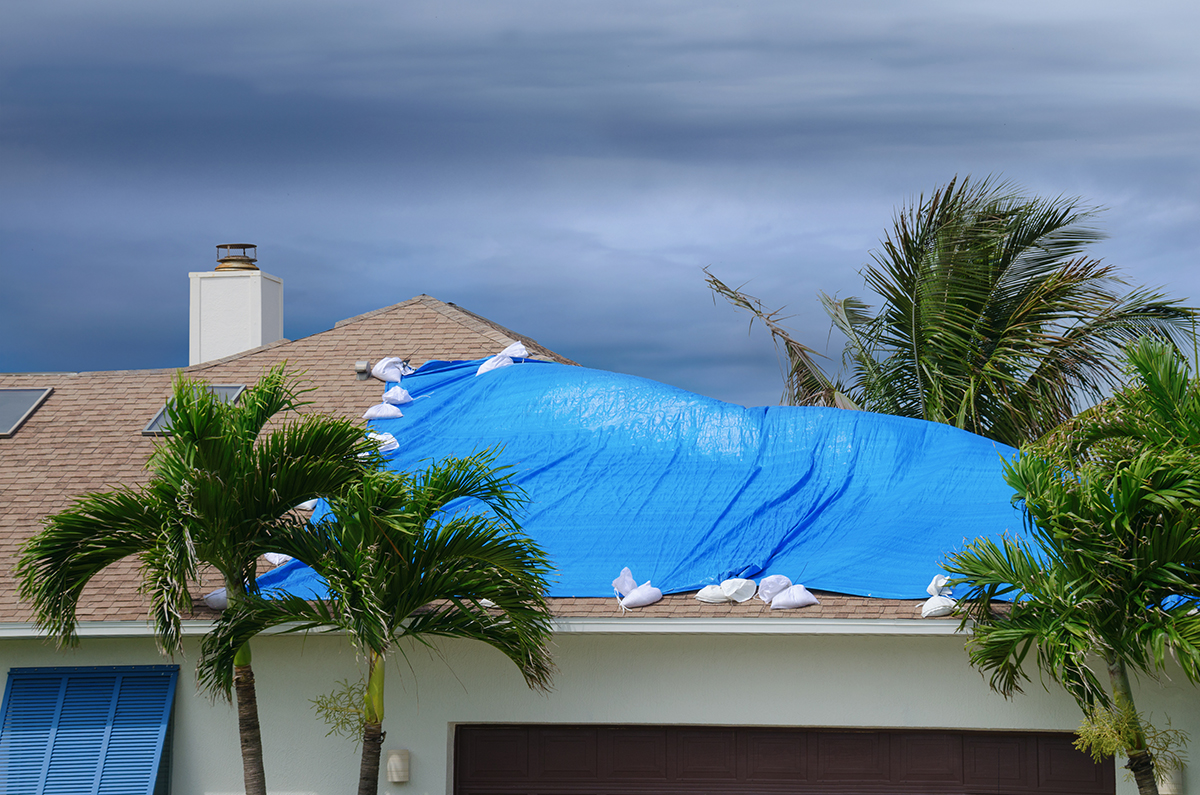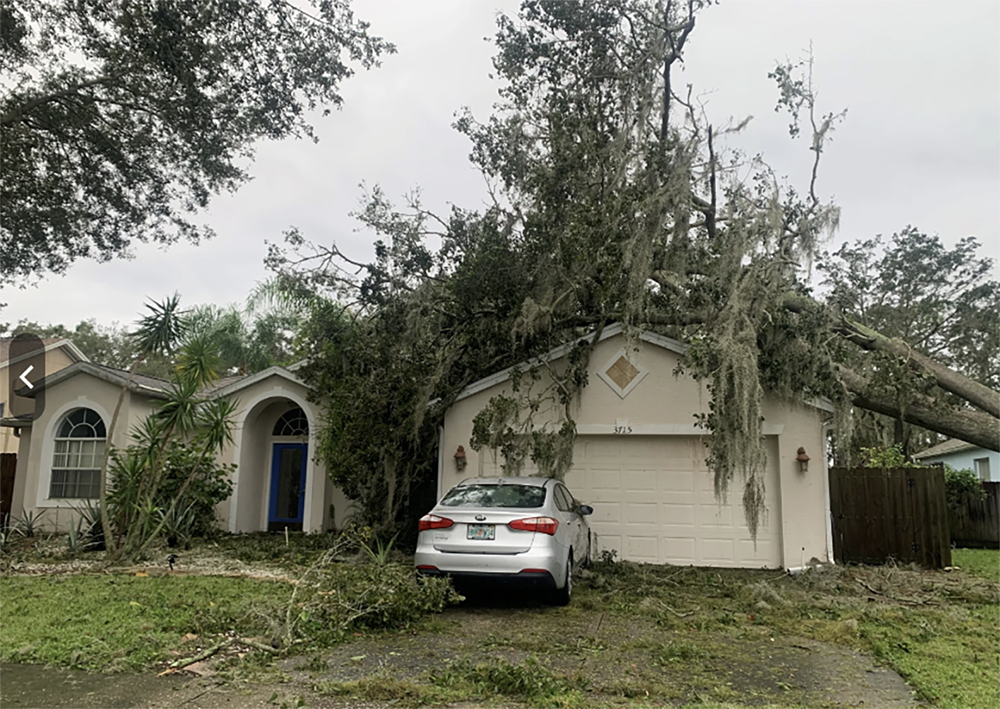Hurricane Preparation
Hurricane season can bring anxiety to Southwest Florida residents, so we have a few tips that can help you and your loved ones prepare your home for the storm. And no matter what, we will always be there to help rebuild and put your home back together from any storm damage.
What to Expect
Hurricane season can be a stressful time, whether you’re a new resident or have decades of experience riding out storms like Hurricane Katrina or Hurricane Ian. You can help keep your home and family safe by preparing your home for hurricane season ahead of time. Knowing your home is properly protected from all aspects can help you feel less stressed when the winds start picking up.


Preparing for a Hurricane
Here are some top tips for hurricane preparedness in Southwest Florida:
- Inspect your roof. A well-maintained roof can help to protect your home from hurricane damage. Before hurricane season starts, get your roof inspected for any damage. We can recommend any necessary repairs or improvements that should be done to help your home withstand the heavy rains and wind.
- Check your insurance. Call your insurance company as soon as you hear a hurricane may be headed our way, and get details on what is covered, how much is covered, and what your deductible is for damage. There may be something in your policy that can be modified to better cover you.
- Take pictures. Roof dents and damage are inevitable, so be sure to take photos of your roof before the storm. Having ‘before’ photos can help you identify where damage has occurred after the storm.
- Secure loose items. Anything that can be picked up by the wind and thrown through your windows or roof is a potential hazard. Secure any loose items, such as lawn furniture, toys, and trash cans, before a hurricane arrives.
- Board up your windows. If you have storm shutters, install them before a hurricane arrives. If you don’t have storm shutters, you can board up your windows with plywood.
- Have a plan. What will you do if a hurricane strikes? Make a plan for how you will stay safe and secure during the storm. This plan should include where you will go if you need to evacuate, as well as what you will do to protect your home.
Have a hurricane supply kit. A hurricane supply kit should include enough food, water, and other supplies to last for at least 7 days. You should also have a first aid kit, a battery-powered radio, and a flashlight.
after the Hurricane
The rains have lifted, the winds have died down, and your neighbors have begun sorting the debris into piles. After a hurricane has passed, it’s important to do the following to make sure your home can get back to normal as soon as possible:
- Inspect & Document Damage. Once is is safe to do so, give us a call to inspect and document the damage to your roof. We will check your roof for missing tiles or shingles, dents in metal, or other signs of damage. We’ll even look in your attic since it may not be possible to see leaks or water damage from the outside. We will document everything for you so there are plenty of photos of the damage before you begin cleanup. Do not clean up storm damage until after the photos are taken. Being able to display the debris that caused the damage can play a part in your claim.
- Start a claim. Once you have had your roof inspected and photographed, contact your insurance company. They will be able to help you to file a claim and to get your roof repaired or replaced.
- Get quotes. After filing a claim, you’ll need to get quotes from roofing companies to get your roof replaced or repaired. It’s helpful to get multiple quotes from a few different companies. Get recommendations from friends or go online, then research each contender to make sure they are reputable by reading their reviews and viewing their completed work.
- Get a public adjuster. If you feel your insurance company is not providing enough money to cover roofing repairs, you may want to consider a public adjuster. Do your research and ask us to refer you to a trusted public adjuster, we work with a few firms that will get you paid a fair amount in most cases to get your home put back together.
How to Choose a Roofer
There are so many roofers that seem to come out of the woodwork after a storm, how do you know which one is right for you? Keep these aspects in mind when considering roofing contractors after a hurricane.
- Must be Florida licensed. The State of Florida requires that all roofing contractors doing work in the state be properly licensed and registered. Double check that any roofing company that reaches out to you has a Florida roofing license number that is currently active. Their license number is required to be on all their advertising materials including their vehicles, business cards, and website.
- Read reviews. Check out their reviews on BBB, Yelp, Google, and social media to see what others have to say about the company. Make sure there are some recent reviews, and note how the company responds to reviews. Pay special attention to how negative feedback is received.
- Beware of storm chasers. After hurricanes, particularly strong ones, many roofers will come down from other states, get licensed in Florida, then head home when work dries up. Be mindful of your contract terms when signing with a company that is not locally-owned, because there may not be a promise that your out-of-state roofer will come back to Florida for warranty calls on jobs that may not have been done correctly to begin with. Having a locally owned roofer is beneficial when it comes to maintenance.
- Cheaper is not always better. Many out-of-state and even local companies will agree to do the work for pennies on the dollar. Be wary of potential multiple mid-job change orders or lack of post-work warranty. We have witnessed far too often customers find out after the fact much of the roof was not covered in the original contract. Ask us to compare estimates to ensure apples are being compared to apples and not pineapples.
- Get everything in writing. Once you have chosen a roofing contractor, be sure to get everything in writing. This includes the scope of work, the cost of the project, and the timeline for completion. As with any project, contract terms should be read, read again, and read by a friend or spouse to make sure there aren’t any grey areas or loopholes that can put you in a bind.
- Be mindful of scammers. A common scam is for a person/company to convince you to sign an Assignment of Benefits (AOB) without a contract for the actual project. They then inflate the repair cost, take the money your insurance company pays them, and runs off. If a company asks you to quickly sign an AOB or other document without a contract stating the scope of work, the cost of the repairs, and the timeline for completion, they may be a scam.
- Ask about subcontractors. During periods of high demand like after a storm, companies may subcontract out aspects of a re-roofing project in order to make sure their clients get a roof in a timely manner. While this is helpful, there is no guarantee that those subcontractors are experienced in roofing. Ask your roofer whether they hire out for any parts of your project, and if those subcontractors are experienced in roofing.
Top Hat Roofing is here for you before and after any hurricane. By following these tips, you can have an easier time handling hurricane repairs when they’re needed. Trust your locally-owned and operated roofing company, Top Hat Roofing!
